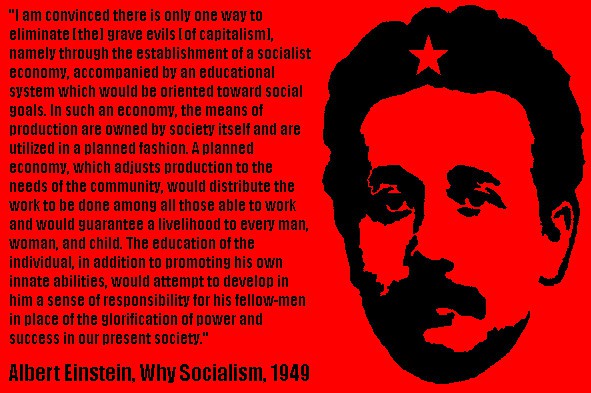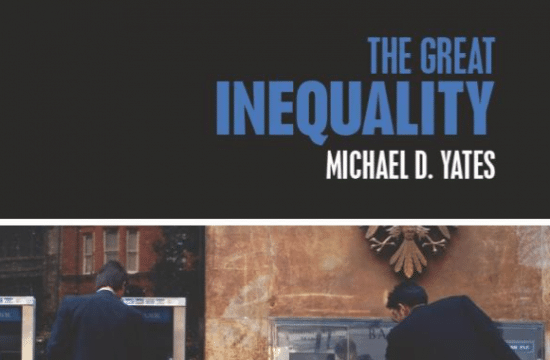 Counterpunch editor Jeffrey St. Clair’s essay, “The Silent Death of the American Left,” succinctly discusses the absence of a left-wing presence and activism in the face of myriad social and ecological disasters.* Somewhat surprisingly, this straightforward account elicited sharp criticism—St. Clair’s pessimism was unwarranted and a sign of an intellectual pathology of defeatism, especially in light of the move of some liberal intellectuals toward the left and agitations such as OWS and the Chicago Teachers Union strike.
Counterpunch editor Jeffrey St. Clair’s essay, “The Silent Death of the American Left,” succinctly discusses the absence of a left-wing presence and activism in the face of myriad social and ecological disasters.* Somewhat surprisingly, this straightforward account elicited sharp criticism—St. Clair’s pessimism was unwarranted and a sign of an intellectual pathology of defeatism, especially in light of the move of some liberal intellectuals toward the left and agitations such as OWS and the Chicago Teachers Union strike.
One troubling criticism of the article was that the author was some sort of “Edward Abbeyist,” a reference to the great writer of the American West. Abbey, it was argued, was a representative of an anti-urban philosophy that was out-of-date, with nothing to offer the 80 percent of the U.S. population living in metropolitan areas. Further, it is in cities that hopeful changes are taking place, and it is in our cities where the intellectuals who are helping to drive this change dwell. While we are told by the media and politicians that the Real America is in the nation’s heartland, it is actually somewhere in Brooklyn and surrounds.
This presumed split between a sophisticated urbanism and backward “hicks from the sticks” is troubling. For one thing, metropolitan areas contain a good deal of diversity. In Pittsburgh, for example, a short drive from the city center takes you to places that you’d be hard-pressed to recognize as urban. The same is true for Portland, Los Angeles, Denver, Miami, St. Louis, Boston, and every other city in the country. For another, how is it that the desires and needs of those in metropolitan areas are radically different than those of the nearly 63,000,000 residents of the so-called “sticks.” This certainly isn’t our experience, gained in twelve years of traveling around the country, closely observing how people live and work in places large and small.
And let’s examine this charge of “Edward Abbeyism.” Consider the multiple environmental disasters now confronting us. Abbey was not only a great writer, a sophisticated thinker who could hold his own with the best intellectuals. He was also a seminal figure in the radical environmental movement, which is surely extraordinarily relevant to everyone in the United States. He fought many worthy battles against the despoliation of our western lands. What is more, his progeny are fighting every day against oil from tar sands, fracking, dams, mountaintop removal for strip mining, deforestation, factory farming, the rampant destruction of plant and animal species, the environmental ravages of tourism, every type of pollution, and global warming. These valiant warriors are in every part of the country, from the remote Navajo nation to Manhattan. To say that none of this is relevant to most of the country is to be willfully ignorant. Tell this to the victims of Hurricane Sandy in New York City or Katrina in New Orleans.
Or consider the Occupy Wall Street uprising. Edward Abbey’s anarchist sensibility, his distrust of hierarchy, and his grasp that the government most often represents the interests of the 1% was everywhere in evidence, all around the country, not least in Zuccotti Park. Those in the forefront of OWS were not liberal and left-wing urban intellectuals, though these were quick to visit and write commentaries for their circular admiration societies. Instead, they were radical anarchists such as David Graeber, willing to put their bodies on the line. Edward Abbey would have been right at home among them.
I could go on and discuss the obvious fact that protests and hopeful signs of radical renewal are almost always in evidence in the United States, but that these have rarely brought about radical change. Or point out that pessimism about the state of the left does not mean that a person is not at the same time hopeful. Instead, let us reflect on the truth that what happens anywhere in the country, or the world, both politically and environmentally, affects everyone. More and more, we are one nation and one world, forevermore intimately interconnected. Deforestation in China and the expansion of desert regions that has followed in its wake affect air quality and weather patterns in the United States. The melting of the polar ice caps is causing the oceans to rise, which will soon enough flood our coastal cities. The nuclear meltdown at Fukushima has imperiled the U.S. food supply. The recent U.S. financial crisis wrought havoc throughout the world.
We have to take the view that either everyone matters everywhere, or no one matters anywhere. Whether you are one of the world’s two billion peasants, a starving urban dweller in Athens, an illiterate street vendor in Cairo, or one of the obscure members of the 99% here in the United States, your life counts. When we arbitrarily divide a country or the world into those parts that are “Real” and those that are not, we are ignoring a large part of humanity. We are assuming that those outside the “Real” parts of the earth have hopes and aspirations that are unworthy or our attention and knowledge of no use to us. Such thinking is profoundly elitist and reactionary. We cannot hope to create the world we desire if we continue to stand superior to the very people who must bring this world into being.
Maybe we should commit to memory John Donne’s great sermon:
No man is an island, entire of itself;
every man is a piece of the Continent,
a part of the main; if a clod be washed away by
the sea, Europe is the less, as well as if a promontory were,
as well as if a manor of thy friends or of thine own were;
any man’s death diminishes me, because I am
involved in mankind. And therefore never ask for
whom the bell tolls; it tolls for thee.
*This essay first appeared in counterpunch, May 28, 2013.








I had no problem agreeing with most of St. Clair’s article; he states an obvious case. But, his case is as hodge-podge as our “movement” today. A little of this, a little of that, some old, some new, the cause dujour and some old reliable issues from days gone by. No mention of the working class, however, and no mention of the many desperate battles playing out today among the unions, or among the many millions of unorganized. His article is as exhausted and unfocused as the micro-fragmented “left” today.
I won’t present my own political life as any guide, but I have no doubt that my consistent 35 years spent in the workplace, in the unions, and up to my ears in class struggles of every kind have kept me going, and going, and going. I am more convinced of the necessity of working class organization — for self defense, mutual aid, as well as to challenge corporate and state power — than I was when I got started.
I have also come to learn that for the vast majority of working people the “left” as we have known it is merely a far-off series of sideshows that makes little effort to relate to the working class. Sadly, the “left” ignores the many tens of thousands of union activists and militants who challenge the menace of corporate and employer power on a daily basis; worse still, some inadvertently make great efforts to draw off that energy into far-flung causes and crusades far, far, away from the workplace — and therefore remote from a base and audience among working class people.
We certainly have enormous work to do. I recall an article in MR some 15-20 years ago along the lines of “The Responsibility of the Left” or some such. If you or anyone recalls it and has any way to repost it somehow my memory of it was that it was a quite stern reminder to all of us to take stock, and then get back to work. It was a boost to my own morale when I first read it, and I have often searched for it to no avail.
Thanks again. Chris Townsend
Chris, as always, thanks for a thoughtful post. You are right about the irrelevance of the left to the masses of working people. And too many leftists are both ignorant of and condescending toward workers. Some are making much of a supposed resurgence of the left. They seem to believe that because Paul Krugman is citing a radical economist (Kalecki), the Nation invited a young radical to criticize it, and conferences, a new magazine, and seminars are flourishing that we are on the brink of revolution. Then there are the left sects, notably the execrable Trotskyists, with their monomaniacal repetition of the same crap we have been hearing from their for decades. Meanwhile, good folks like you, the late Jerry Tucker, and many others, keep fighting in the real world.
yes to all of the above…
the st. clair piece i think was intended as hodgepodge, and that’s kind of what counterpunch is i like the nader quote they use when fundraising – “A roaring colosseum of commentary…’
the left has devolved into tailing the democrats, supporting everything we’re supposed to oppose; all the worse now with obama as chief mass murderer, wage/debt slaver and subjugator of other lands. the intuitive notion that we all have to count, as you say, means the yemeni kids droned to bloody deaths are as vaulable as the kids down the street – would we tolerate our neighbors being droned in return for a slightly better supreme court justice?
the organized labor left [yes i know this is an over-generalization] as well spends its efforts navigating the general retreat going back the last 40 years. it’s a constant scramble to keep what little we have, or give it back as slowly as possible.
the ‘execrable trotskyists’ as opposed to the good trotskyists, or all of them? not one myself, but they seem to come in many varieties. personally i’m reassssng the maoist tradition, to which i had almost no exposure prior to a few years ago.
jp, I agree with your points. People on the left, especially the sectarians, think the counterpunch should follow some party line. When it doesn’t they freak out. I’d be inclined to say all the Trotskyists. I appreciate what Mao tried to do, especially the independence of the countryside. But US Maoists are pretty much sectarians of the worst sort.
the kasama project people, having left the rcp sect behind, are mostly maoists who’ve shown themselves willing to engage in principled and substantive discussions… [no, this is not a promo]